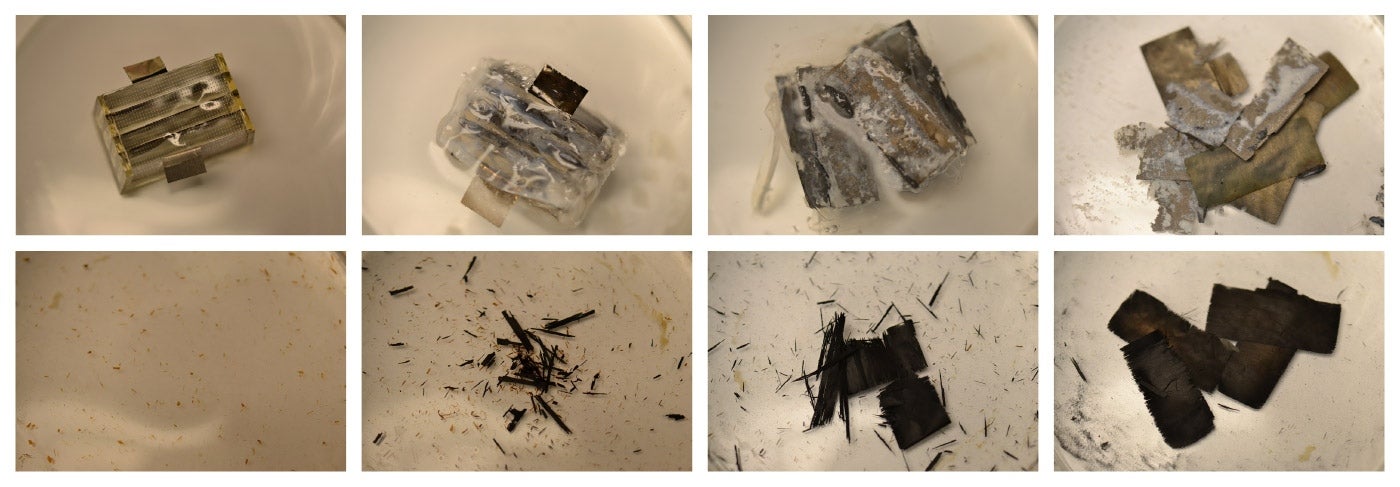The Independent's journalism is supported by our readers. When you purchase through links on our site, we may earn commission.
Batteries that dissolve inside you have been invented by scientists
Invention means that embedded devices can be implanted and forgotten about

Health care providers of the future are likely to use more and more embeddable medical devices to monitor patients and even deliver treatments. However, delivering power to these devices is a problem.
To solve this, a group of biomedical engineers have created a fully biodegradable battery that can dissolve harmlessly in the body after functioning as a power source for devices embedded deep in the tissue.
These batteries are made from metals that are biocompatible in small doses, with anodes constructed from magnesium foil and cathodes of iron, molybdenum or tungsten. Once implanted in the body they slowly dissolve, releasing a small amount of metal but not in concentrations that will cause problems.
The design of the batteries was published last week in the journal Advanced Materials, with engineers saying that current versions were able to maintain a steady electrical output for more than a day and predicting that future batteries would be just a single micrometre thick.
Dissolvable batteries of this sort could provide the key power source for new type of biodegradable silicon chip (above), first unveiled in 2012 by materials scientist John Rogers from the University of Illinois.
Rogers’ chips dissolve into tissues and stay there, monitoring anything from temperature to mechanical strain and then relaying this information via radio to nearby computers, with engineers speculating that the chips could even be used to prevent infections by heating up the surrounding tissue.
However, powering these devices is a problem, with the original designs relying on wireless power transfer that meant embedding even more material into the patients’ body.
The biodegradable battery offers a simpler solution, creating embeddable devices that could be implanted in a body and then simply forgotten about, dissolving harmlessly after they’ve fulfilled their purpose.
Join our commenting forum
Join thought-provoking conversations, follow other Independent readers and see their replies
Comments